In the midst of this global moment of upheaval, Encounter remains committed to bringing you the questions that need confronting, shaping the conversations we need to be having and considering the implications for our shared future.
While our hearts and minds are preoccupied with the burning issues of racial justice in the United States, we are simultaneously very aware that the original deadline for the Knesset to vote on Israel’s annexation of parts of the West Bank is less than one month away.
Join us to further explore the wide range of perspectives on this issue, with policy experts, human rights lawyers, activists, and concerned stakeholders who will share their diverse viewpoints on what Annexation will mean for the future of Jews, Palestinians, and the region as a whole.
As always, Encounter believes in taking a kaleidoscopic lens, hearing from multiple points of view and asking you, committed Jewish leaders, to consider them as you chart your own path forward.
It is rarely comfortable, but meaningful learning rarely is.

Quick Access
READ MORE: Introduction to Annexation – Background and Key Issues
READ MORE: How We Got Here – Four Paradigms for Understanding the Status of the West Bank
READ MORE: Implications of Annexation for Palestinians
READ MORE: Annexation & Human Rights: A Palestinian Perspective
READ MORE: Annexation & Diplomacy
READ MORE: The Changing Landscape of Palestinian-American Activism
READ MORE: Encountering the Palestinian-American Diaspora
READ MORE: Annexation and the Geopolitical Dimension
READ MORE: Annexation: The Best Path Forward?
READ MORE: De Facto, De Jure: How Did We Get Here?
READ MORE: Human Rights Impact of Annexation: An Israeli Perspective
READ MORE: What’s Next for the West Bank?
Previous Sessions
Introduction to Annexation – Background and Key Issues with Dahlia Scheindlin
Wednesday May 13, 1:30-2:30pm ET / 10:30-11:30am PT / 8:30-9:30pm Jerusalem Time
Dahlia Scheindlin, public opinion expert and strategic consultant, shared an overview of the history and development of the move toward annexation by the Israeli government, including a briefing on recent developments that have reshaped the contours of this issue.
 Dr. Dahlia Scheindlin is a public opinion expert and strategic consultant with twenty years of experience, specializing in liberal and progressive social causes. She has advised eight national campaigns in Israel and has worked in 15 other countries. Dahlia conducts research and policy analysis on the Israeli-Palestinian conflict, regional foreign policy, democracy, human rights and civil rights, minority issues, religion and state, domestic political analysis, comparative conflict and comparative politics. Her clients include a long list of local and international civil society groups, think tanks and political actors. She has regional expertise in the Balkans and Eastern Europe, particularly post-conflict societies and transitional democracies. Dahlia is a co-founder and columnist at +972 Magazine; a fellow at The Century Foundation; policy fellow at Mitvim – the Israeli Institute for Regional Foreign Policies, and she co-hosts the The Tel Aviv Review podcast. She is a frequent lecturer, analyst and media commentator.
Dr. Dahlia Scheindlin is a public opinion expert and strategic consultant with twenty years of experience, specializing in liberal and progressive social causes. She has advised eight national campaigns in Israel and has worked in 15 other countries. Dahlia conducts research and policy analysis on the Israeli-Palestinian conflict, regional foreign policy, democracy, human rights and civil rights, minority issues, religion and state, domestic political analysis, comparative conflict and comparative politics. Her clients include a long list of local and international civil society groups, think tanks and political actors. She has regional expertise in the Balkans and Eastern Europe, particularly post-conflict societies and transitional democracies. Dahlia is a co-founder and columnist at +972 Magazine; a fellow at The Century Foundation; policy fellow at Mitvim – the Israeli Institute for Regional Foreign Policies, and she co-hosts the The Tel Aviv Review podcast. She is a frequent lecturer, analyst and media commentator.
How We Got Here – Four Paradigms for Understanding the Status of the West Bank with Tal Becker
Thursday May 21, 1:00-2:30pm ET / 10:00am-11:30am PT / 8:00-9:30pm Jerusalem Time
Tal Becker outlined four different views on the status of the West Bank/Judea & Samaria, their legal origins, and their moral implications – each of which with direct implications on the issue of annexation. These four paradigms were intended to offer a framework through which to understand and examine the theoretical underpinnings of the various debates on this issue.

Dr. Tal Becker is a Senior Fellow at the Shalom Hartman Institute in Jerusalem where he leads educational initiatives on Israel and the Jewish world. In this capacity, he is a leading member of the Institute’s “Engaging Israel” series which is the premier educational program on Israel engagement in North America that is working to strengthen and re-imagine the relationship between Israel and World Jewry. Dr. Becker also serves as the Legal Adviser of the Israeli Ministry of Foreign Affairs, and has been a senior member of the Israeli peace negotiation team in successive rounds of peace negotiations. He has years of experience on the front lines of many of Israel’s most pressing diplomatic, legal and policy challenges as a veteran negotiator, and key behind the scenes representative, for Israel in a wide variety of contexts. Among numerous previous positions, Dr. Becker has been a senior fellow at the Washington Institute for Near East Policy, senior policy advisor to Israel’s Minister of Foreign Affairs, a lead negotiator and drafter in the Annapolis peace talks, Director of the International Law Department at the Israeli Foreign Ministry, counsel to Israel’s UN Mission in New York, and an international law expert for the Israel Defense Forces. He earned his doctorate from Columbia University and, among numerous scholarly awards, is the winner of the Rabin Peace Prize and the 2007 Guggenheim Prize for best international law book for his book “Terrorism and the State.”
No recording of this session is available.
Implications of Annexation for Palestinians with Sam Bahour
Wednesday May 27, 1:00-2:30pm ET / 10:00am-11:30am PT / 8:00-9:30pm Jerusalem Time
Sam Bahour offered his analysis of the implications for Palestinians in the case of Israeli annexation of part or all of the West Bank, including both impact on Palestinians living in the areas to be annexed, as well as the impact on those living in the portions remaining under Palestinian Authority control, for whom large areas of the West Bank would become inaccessible. In addition to the presentation and Q&A, this session also included time for discussion in small groups.
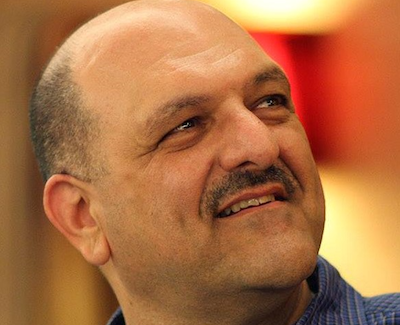
Sam Bahour is a Palestinian-American based in Al-Bireh/Ramallah, Palestine. He relocated, with his family, to Palestine from the United States in 1995 to assist in the building of the Palestinian telecommunications sector. Today, Sam owns and runs a management consulting firm, Applied Information Management (AIM), which is engaged in business development, executive counsel, strategic management, and investment. He regularly gives public talks and writes frequently on Palestinian affairs and has been widely published in outlets such as The New York Times, The Washington Post, The Guardian, The Hill, The Huffington Post, Le Monde, among others.
Annexation & Human Rights: A Palestinian Perspective with Shawan Jabarin
Tuesday, June 2, 1:00-2:30pm ET / 10:00am-11:30am PT / 8:00-9:30pm Jerusalem Time
Shawan Jabaran shared his perspective as the director of Al-Haq on the implications of annexation from a human rights perspective, both individually and as a collective.
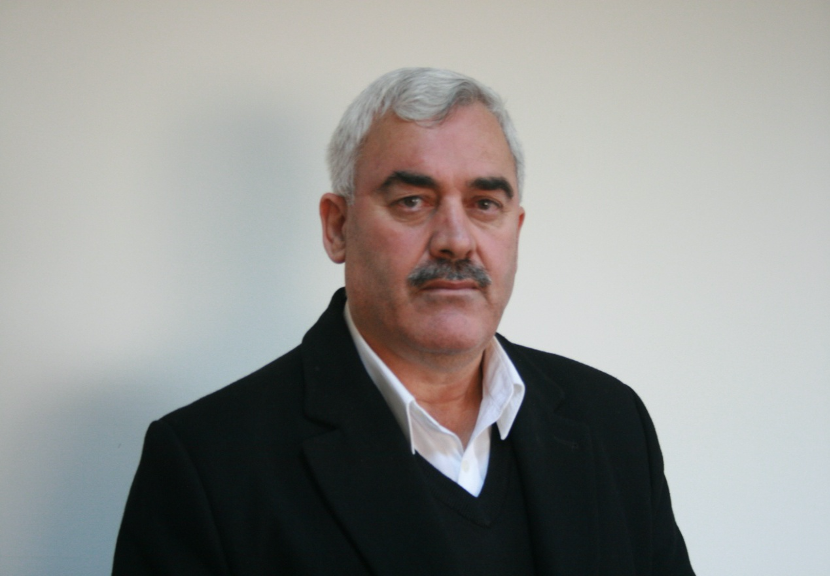
Shawan Jabarin is the General Director of Al-Haq and a Secretary General of the International Federation for Human Rights(FIDH). In 2011, Jabarin was appointed to the Human Rights Watch Middle East Advisory Board and in 2013, he was elected as a Commissioner for the International Commission of Jurists (ICJ), and in 2018, he was elected as executive committee member for the ICJ. Jabarin was the first Palestinian to be recognized by Amnesty International as a “prisoner of conscience” after having spent years under administrative detention in Israeli jails without charge or trial. He is a recipient of the Reebok Human Rights Award in 1990 for his defense of the freedom of expression and human rights. He received his BA in Sociology from Birzeit University and an LLM in International Human Rights Law from the National University of Ireland, Galway. He also served as a part-time lecturer at Birzeit University, Palestine.
Annexation & Diplomacy with Jamal Zakout
Thursday, June 4, 1:00-2:30pm ET / 10:00am-11:30am PT / 8:00-9:30pm Jerusalem Time
Jamal Zakout, former Senior Advisor to Palestinian Prime Minister Salam Fayyad, offered an outline of implications of annexation from a diplomatic angle.
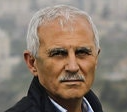
Jamal Zakout is the Chairman of the Board of Al-ARD Research and Study Center. He is the former Chief Advisor on Media, Civil Society & Community outreach for former Palestinian Prime Minister Salam Fayyad. Additionally, he is a Board Member of Palestinian Peace Coalition “Geneve Initiative,” a former Deputy Minister and was a member of the Palestinian team for peace talks from 1994-2000.
No recording of this session is available.
The Changing Landscape of Palestinian-American Activism with Nizar Farsakh
Thursday, June 11, 3:00-4:30pm ET / 1:00am-2:30pm PT / 10:00-11:30pm Jerusalem Time
As Palestinian voices become increasingly prominent in American political discourse, we explored how Palestinian-Americans hope to use their voices and activism to impact the U.S. political agenda as it relates to annexation and the Israeli-Palestinian conflict more broadly.
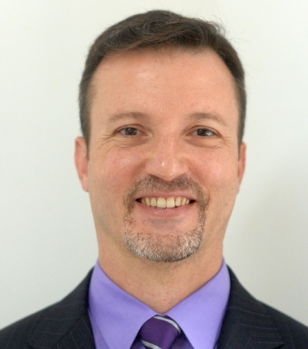
Nizar Farsakh is a trainer on leadership, negotiations and advocacy with extensive experience across the Middle East and North Africa. From 2011-2013 he was the director of the Palestinian Delegation in Washington D.C. and from 2003-2008 he advised senior Palestinian leaders including the President, the Prime Minister and various ministries. Currently, Nizar teaches negotiations at George Washington’s Elliot School of International Affairs and is involved in several non-violence initiatives in Palestine/Israel and the US. He is also chair of the board of the Museum of the Palestinian People in Washington D.C.
Encountering the Palestinian-American Diaspora with Zaha Hassan
Monday, June 15, 4:00-5:00pm ET / 1:00pm-2:00pm PT / 11:00pm-12:00am Jerusalem Time
Explore the diverse and multi-vocal perspectives of diaspora Palestinians on the issue of Annexation: Who makes up the Palestinian-American community? What are their views on this issue? And what are their hopes and visions for the future of the region?
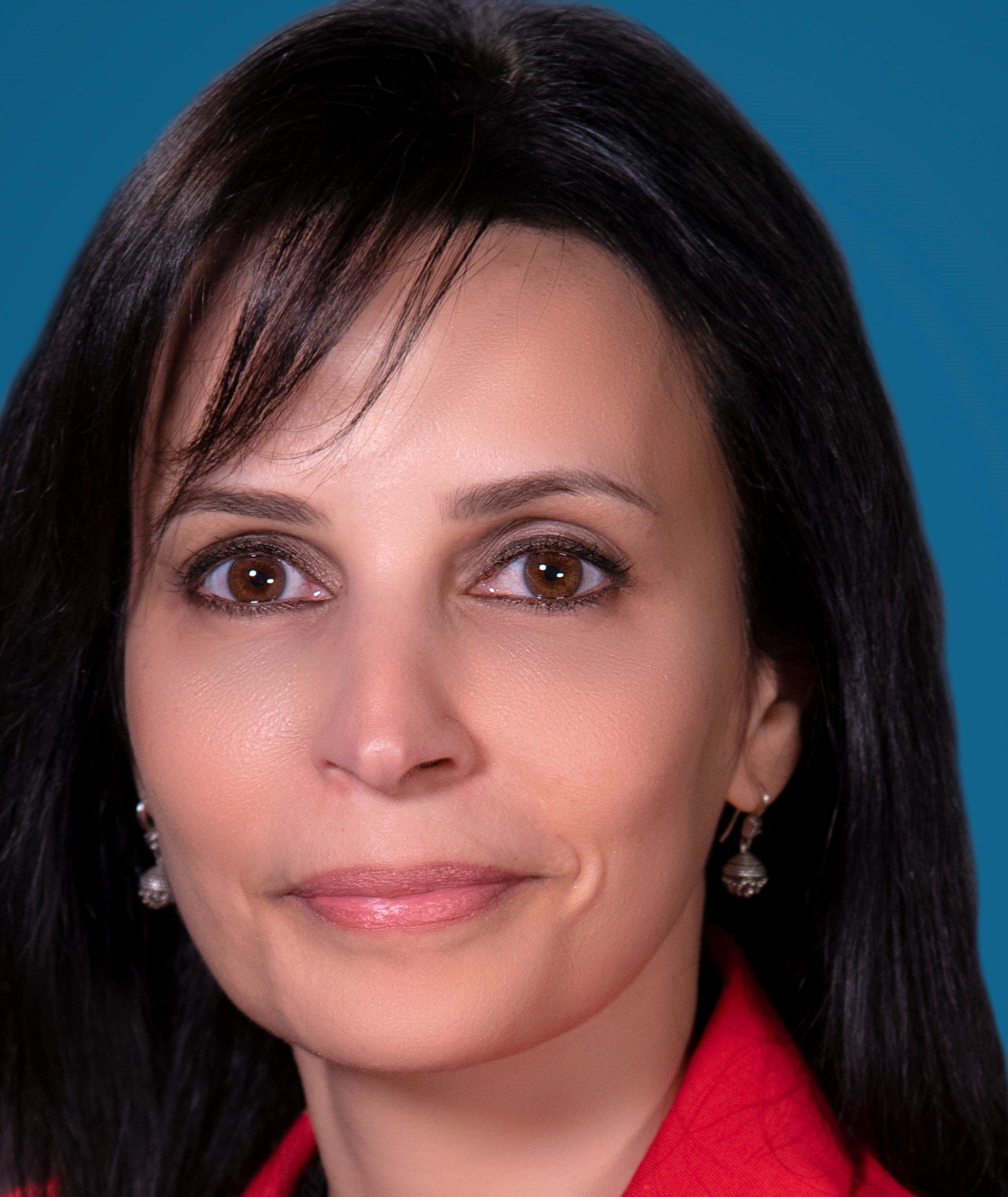
Zaha Hassan is a human rights lawyer and visiting fellow at the Carnegie Endowment for International Peace. Her research focus is on Palestine-Israel peace, the use of international legal mechanisms by political movements, and U.S. foreign policy in the region. Previously, she was the coordinator and senior legal advisor to the Palestinian negotiating team during Palestine’s bid for UN membership, and was a member of the Palestinian delegation to Quartet-sponsored exploratory talks between 2011 and 2012. She regularly participates in track II peace efforts and is a contributor to The Hill and Haaretz. Her commentaries have appeared in the New York Times, Salon, Al Jazeera English, CNN, and others.
No recording of this session is available.
Annexation and the Geopolitical Dimension with Ghaith Al-Omari and David Makovsky
Thursday, June 18, 4:00-5:30pm ET / 1:00pm-2:30pm PT / 11:00pm-12:30am Jerusalem Time
Explore the potential geopolitical ramifications of annexation for the Palestinian Authority, the US, and the Arab world, including implications for Israeli-Palestinian, Israeli-American, and Israeli-Arab relations.
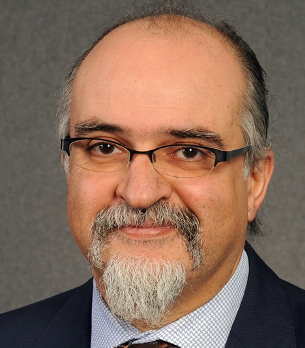
Ghaith Al-Omari, a senior fellow in The Washington Institute’s Irwin Levy Family Program on the U.S.-Israel Strategic Relationship, is the former executive director of the American Task Force on Palestine.
He served as advisor to the negotiating team during the 1999–2001 permanent-status talks in addition to holding various other positions within the Palestinian Authority.
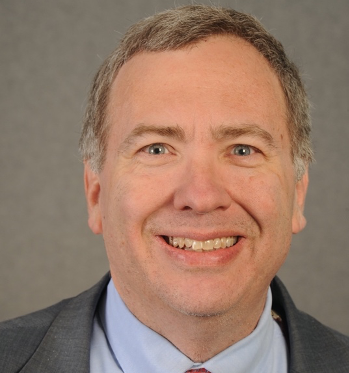 David Makovsky is the Ziegler distinguished fellow at The Washington Institute and director of the Project on Arab-Israel Relations. He is also an adjunct professor in Middle East studies at Johns Hopkins University’s Paul H. Nitze School of Advanced International Studies (SAIS). In 2013-2014, he worked in the Office of the U.S. Secretary of State, serving as a senior advisor to the Special Envoy for Israeli-Palestinian Negotiations.
David Makovsky is the Ziegler distinguished fellow at The Washington Institute and director of the Project on Arab-Israel Relations. He is also an adjunct professor in Middle East studies at Johns Hopkins University’s Paul H. Nitze School of Advanced International Studies (SAIS). In 2013-2014, he worked in the Office of the U.S. Secretary of State, serving as a senior advisor to the Special Envoy for Israeli-Palestinian Negotiations.
Author of numerous Washington Institute monographs and essays on issues related to the Middle East Peace Process and the Arab-Israeli conflict, he is also coauthor, with Dennis Ross, of Be Strong and of Good Courage: How Israel’s Most Important Leaders Shaped Its Destiny (PublicAffairs) and the 2009 Washington Post bestseller Myths, Illusions, and Peace: Finding a New Direction for America in the Middle East (Viking/Penguin). He is the host of the podcast Decision Points: The U.S.-Israel Relationshipa, which features interviews with authors, scholars, and practitioners on key moments in the history of U.S.-Israel relations from the Balfour Declaration to hi-tech cooperation today. His 2011 maps on alternative territorial solutions to the Israeli-Palestinian conflict were reprinted by the New York Times in the paper’s first interactive treatment of an op-ed.
Before joining The Washington Institute, Mr. Makovsky was an award-winning journalist who covered the peace process from 1989 to 2000. He is the former executive editor of the Jerusalem Post, was diplomatic correspondent for Israel’s leading daily, Haaretz, and is a former contributing editor to U.S. News and World Report. He was awarded the National Press Club’s 1994 Edwin M. Hood Award for Diplomatic Correspondence for a cover story on PLO finances that he cowrote for the magazine.
A native of St. Louis, Missouri, Mr. Makovsky received a bachelor’s degree from Columbia University and a master’s degree in Middle East studies from Harvard University.
Annexation: The Best Path Forward? with Sara Haetzni-Cohen
Monday, June 22, 2:00-3:00pm ET / 11:00am-12:00pm PT / 9:00-10:00pm Jerusalem Time
Hear from a proponent of annexation and leader of Israel’s “largest grassroots organization promoting Zionist activism” about how she locates her commitments in relation to the intersecting values of Ahavat Yisrael (Love of the Jewish People) and K’vod Ha’adam (Human Dignity).
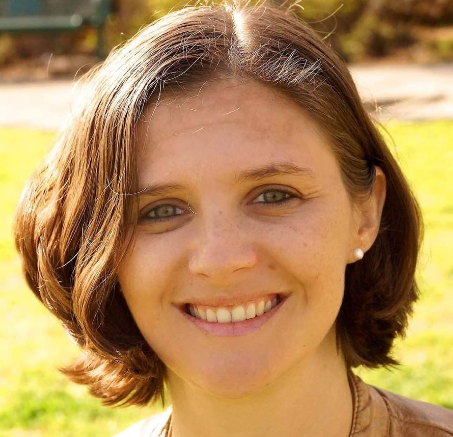
Sara Haetzni-Cohen has led My-Israel since 2012, following the organization’s founding in 2010 by Ayelet Shaked and Naftali Bennet. She is a weekly columnist for Makor Rishon, one of Israel’s leading newspapers, and a frequent contributor to the Israeli public and media discourse.
Sara holds a B.A. in communications and business management and M.A. in public policy from the Hebrew University of Jerusalem. Following her service as an officer in the IDF, Sara served as a shaliach at Camp Ramah in Wisconsin for three years. As the head of My-Israel, she regularly briefs diplomats, foreign delegations and students on the challenges and opportunities facing Israel today. In 2016, she was awarded the prestigious Moskowitz Prize for New Initiatives.
Sara also serves as a board member of the Jerusalem Model, an initiative of the Leichtag Foundation, and is a member of ROI Community. Born in Kiryat Arba, today Sara lives in Jerusalem’s Kiryat Menachem neighborhood with her husband and 4 children.
De Facto, De Jure: How Did We Get Here? with Inès Abdel Razek and Hagai El-Ad
Wednesday, June 24, 1:00-2:30pm ET / 10:00pm-11:30am PT / 8:00-9:30pm Jerusalem Time
Explore annexation as a natural outgrowth of what already been happening on the ground for years rather than a sharp break with the current reality, and discuss how international intervention might help ensure a just future for the region.
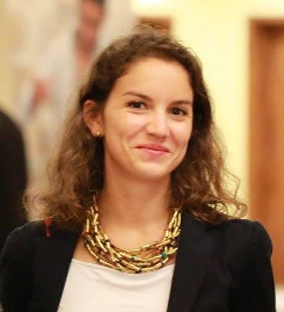
Inès Abdel Razek is the Advocacy Director of the Palestine Institute for Public Diplomacy, A Palestinian NGO. Prior to joining the PIPD in 2019, Inès has held advisory positions in the executive offices of the Union for the Mediterranean in Barcelona, the UN Environment Programme in Nairobi and the Palestinian Prime Minister’s Office in Ramallah, on international governance and development cooperation policies in the Arab World. Inès is also a policy member at the think-tank Al-Shabaka and an Advisory board member of the social enterprise BuildPalestine. Inès holds a Master’s degree in Public Affairs from Sciences-Po, Paris.Twitter: @InesAbdelrazek
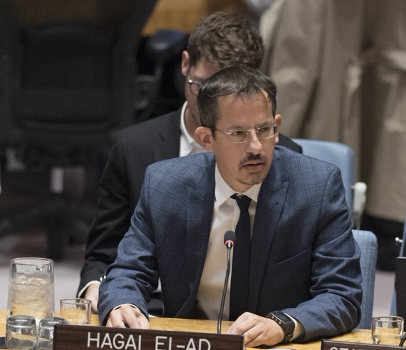
Hagai El-Ad is the executive director of B’Tselem בצלם بتسيلم, the Israeli Information Center for Human Rights in the Occupied Palestinian Territories. Previously he was director of the Association for Civil Rights in Israel (ACRI, 2008–2014) and the Jerusalem Open House for Pride and Tolerance (JOH, 2000–2006). In 2014, El-Ad was among Foreign Policy’s “100 Leading Global Thinkers”. In 2016 and again in 2018, he spoke before the United Nations Security Council calling for international action in order to end the occupation. He lives in Jerusalem and tweets at @HagaiElAd.
No recording of this session is available.
Human Rights Impact of Annexation: An Israeli Perspective with Sharona Weiss
Monday, June 29, 1:00-2:00pm ET / 10:00-11:00am PT / 8:00-9:00pm Jerusalem Time
Delve into the direct implications of annexation, including human rights impact on Palestinians, international implications, and changes in legal and governmental powers, with the head of the International Advocacy Department at Yesh Din.
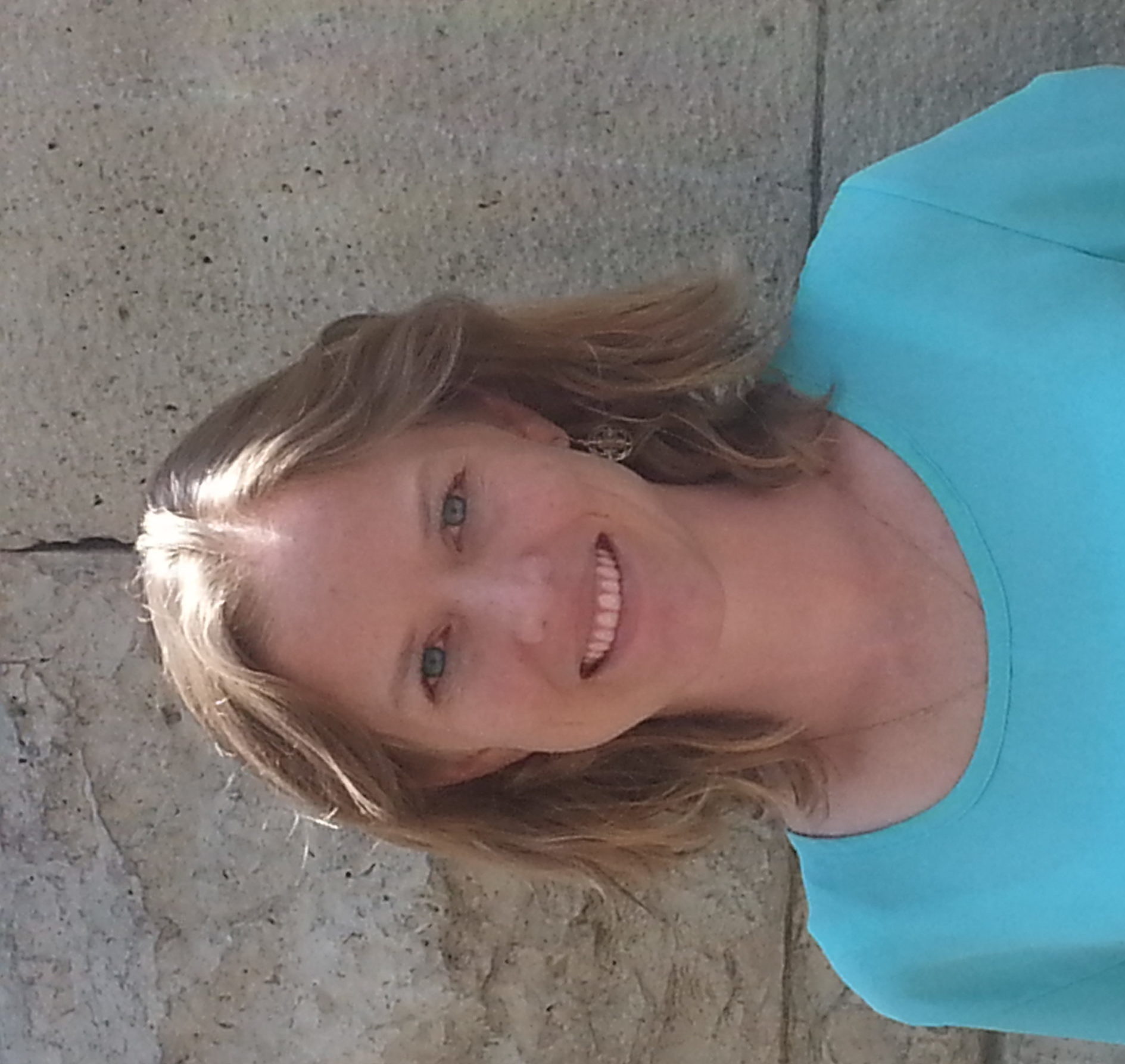
Sharona Weiss is the Director of International Relations at the Israeli human rights organization Yesh Din and is also a contributing photographer with the anti-occupation photography collective, Activestills. She holds an M.A. in Political Science from Hebrew University and a B.A. in Communication from the University of North Carolina in Greensboro. Sharona lives in Jerusalem with her two children.
What’s Next for the West Bank? with Nadav Tamir and Eliaz Cohen
Thursday, July 2, 12:00-1:30pm ET / 9:00-10:30am PT / 7:00-8:30pm Jerusalem Time
Even if formal annexation is postponed, the shifting “status quo” in the West Bank calls upon all of us to rethink and reframe what a future solution might look like. Join two Israeli activists – one who supports a two state solution and one who supports a form of confederation – in a conversation about how we might grapple with this question.
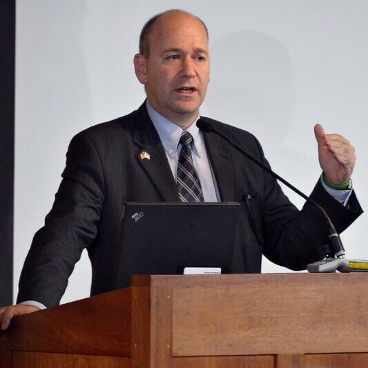
Nadav Tamir is currently Director of International Policy and Government Affairs at Peres & Associates Global Advisory ltd. and Senior Advisor for International and Governmental Relations at the Peres Center for Peace and Innovation. Nadav served as the Senior Policy Adviser to the President of Israel during the last 3 years of the presidency of Shimon Peres. Nadav returned to Israel in 2010 after serving as the Consul General of Israel to New England at the Consulate General of Israel in Boston for four years. He then served at the Policy Planning unit of the Israeli Ministry of Foreign Affairs until July 2011 when he joined the President’s Office.
Nadav joined the Ministry of Foreign Affairs in 1993 and the following year began to serve as the Policy Assistant to the Foreign Minister. Nadav had the privilege to serve as a policy assistant under three Foreign Ministers – Shimon Peres, Ehud Barak, and David Levy.
Nadav holds the position of chairperson of the Wexner – Israel Alumni Association. In 2003, Nadav was chosen as a Wexner Israel Fellow and earned his Masters in Public Administration from the Kennedy School of Government at Harvard University in 2004, Nadav was born and raised on Kibbutz Manara in northern Israel. He is married to Dr. Ronit Tamir, a dance educator, and is the father of Maya, Ido, and Naama.
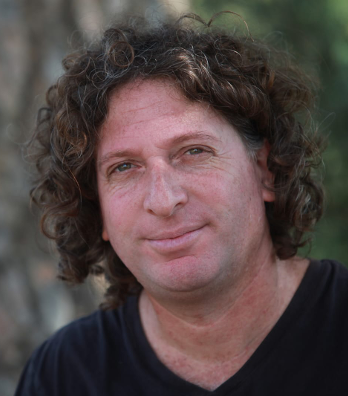
Eliaz Cohen was born in 1972 to a pluralistic religious family. He was named after his uncle, Eliezer Feldman, who was killed in the Sinai Campaign of 1956.
In 1979 the family moved to Elkana in Samaria, where Eliaz grew up. The fact of his being part of a bereaved family and his neighboring to Palestinian villages influenced his world and finds expression in his work. Cohen studied in the Bnei-Akiva Yeshivot, and served in the armored division of the army. In 1994 he began to publish his writings in various magazines and newspapers, starting with prose writings which were followed by poetry.
He is an editor of the “Mashiv Haru’ach” journal of poetry, and author of five published collections of poetry. In addition, a bilingual edition (Hebrew-English) of his poetry was published in 2010 by Toby Press, and a collection from his poetry translated to French by Levant publishing house.
Cohen was the recipient of the “Prime Minister Award” for literature in 2006. In recent years he has stood out as a social activist dealing with such issues as religion and state, narrowing socio-economic gaps, and the sanctity of life. During 2009 he was one of founders of “Yerushalom” a movement for dialogue and peace between Palestinians and Israeli Settlers, that led to the founding of “Roots” center in 2014. Other initiatives that Cohen is leading are “Light Tag” – against the jewishvandalism and hateress attacks that under the name “Price Tag”, and the new peace initiative ” A land for all – 2 States, 1 Homeland”. He is a member in kibbutz Kfar-Etzion, married and a father of four.
